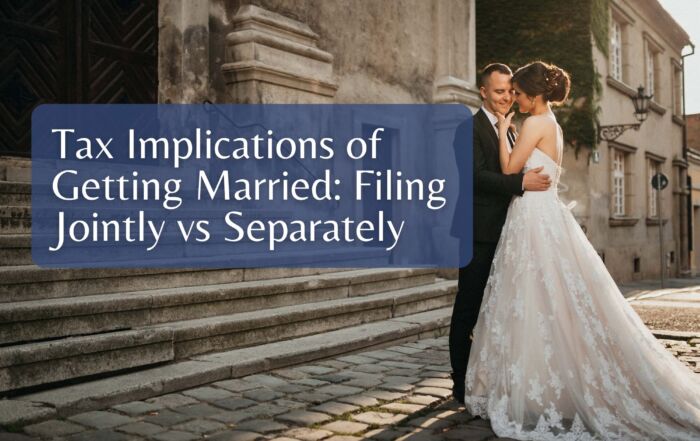
Can a Donor Advised Fund Reduce Your Tax Liability?
The Tax Cuts and Jobs Act (TCJA) of 2018 more than doubled the amount of standard deductions and in 2021, that amount has increased to $12,550 for individuals and $25,100 for married couples. Therefore, many investors do not itemize. If you do not itemize and instead take the standard deduction due to the CARES act, you are allowed to take a $300 ($600 for married couples) above the line deduction for cash, credit card or checks paid directly to a charity. However, if you did itemize in previous years you could usually deduct up to 60% of Adjusted Gross Income (AGI) on cash donations. Again, due to the CARES act in 2021, individuals are allowed to deduct cash contributions to qualified charities up to 100% of AGI with certain income limitations. Any giving beyond this 100% limitation may be carried over and used over the next five years. However, there are some additional planning opportunities that present themselves each year through donor advised funds (DAF) and giving of cash as well as appreciated securities.
What is a donor advised fund? A donor advised fund is a charitable giving account designed for granting to charities as you wish. You donate assets into a DAF which can be held at custodians or broker/dealers and recommend how those assets should be invested within a variety of asset options. The funds are used as tool to help with charitable wishes as well as a tax minimization strategy. It allows the person to donate appreciated stock without any capital gains while also allowing the investor the opportunity to deduct the market value of the donation. The funds are given to the DAF and investors receive an immediate income tax deduction, yet it also allows the funds to grow within the account while the investor decides when and what charity to grant the charitable distribution to. Donating long-term appreciated securities directly to a charity instead of liquidating the asset and donating the proceeds can help maximize tax benefits and the overall amount given to charities. The individual becomes eligible for an income tax deduction of the full fair-market value of the asset, up to 30% of your adjusted gross income. On the other hand, if some securities that have declined in value below your cost, you could choose to sell those securities, realize the loss, and contribute the cash which still allows for the higher deduction amounts.
There is also a planning strategy with donor advised funds and other charitable donations that allows you to still contribute to charity while also receiving monetary benefits as well. This process is called the “bunching” of deductions and although we are not accountants at Wiser Wealth Management, we still help to provide tax strategies and minimizations for our clients and discuss with the client’s CPAs throughout the year on various items including giving techniques and Roth conversions. The bunching of deductions is when you decide to contribute a larger amount one year and itemize all your expenses. Then the following year, you distribute those funds to a charity, but take the standard deduction only for that year. The time to decide what year makes sense for increased contributions may depend on various circumstances like if the individual has received a bigger bonus for the year, sold some rental property, or possibly cashed out of some investments for a larger purchase.
Donor advised funds are a great vehicle that can help reduce taxable liability, allow you to choose how and when to give back to the charity, and know where the money goes. 2021 should provide a time for investors to discuss with their team of professionals including CPAs and financial advisors on planning techniques like donor advised funds.
Matthews Barnett, CFP®, ChFC®, CLU®
Financial Planning Specialist
Share This Story, Choose Your Platform!
Wiser Wealth Management, Inc (“Wiser Wealth”) is a registered investment adviser with the U.S. Securities and Exchange Commission (SEC). As a registered investment adviser, Wiser Wealth and its employees are subject to various rules, filings, and requirements. You can visit the SEC’s website here to obtain further information on our firm or investment adviser’s registration.
Wiser Wealth’s website provides general information regarding our business along with access to additional investment related information, various financial calculators, and external / third party links. Material presented on this website is believed to be from reliable sources and is meant for informational purposes only. Wiser Wealth does not endorse or accept responsibility for the content of any third-party website and is not affiliated with any third-party website or social media page. Wiser Wealth does not expressly or implicitly adopt or endorse any of the expressions, opinions or content posted by third party websites or on social media pages. While Wiser Wealth uses reasonable efforts to obtain information from sources it believes to be reliable, we make no representation that the information or opinions contained in our publications are accurate, reliable, or complete.
To the extent that you utilize any financial calculators or links in our website, you acknowledge and understand that the information provided to you should not be construed as personal investment advice from Wiser Wealth or any of its investment professionals. Advice provided by Wiser Wealth is given only within the context of our contractual agreement with the client. Wiser Wealth does not offer legal, accounting or tax advice. Consult your own attorney, accountant, and other professionals for these services.





